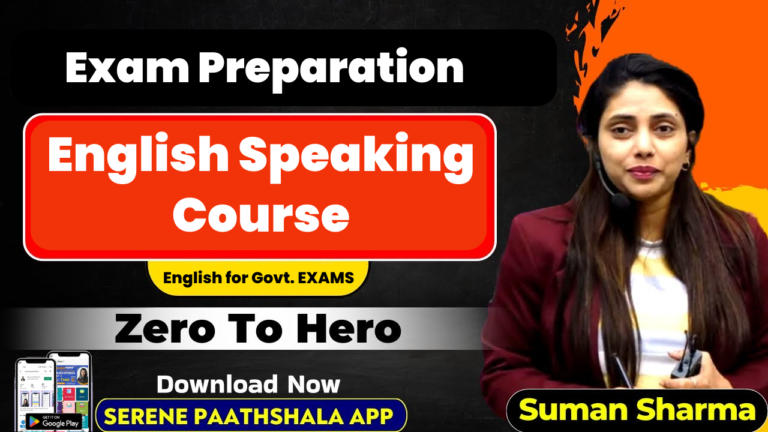
- +91 98210 60203
- [email protected]
- 206A tower 1b, Crossings Republik, Ghaziabad, Uttar Pradesh 201016

Aspiring government job seekers often face the Staff Selection Commission (SSC) Combined Graduate Level (CGL) examination as it is one of the most prestigious examinations in the country. In this exam, English comprehension plays a crucial role, and error spotting is a common topic. Error spotting is a challenging task that requires excellent language skills, critical thinking, and attention to detail. This article aims to provide a comprehensive guide to mastering error spotting in the English comprehension section of the SSC CGL exam.
The English comprehension section in the SSC CGL exam is designed to test the candidate’s proficiency in the English language. The section consists of various topics, including vocabulary, grammar, comprehension, and error spotting. The error spotting part of the section can be tricky, as it involves identifying the errors in a sentence or a passage. The errors can be related to grammar, punctuation, spelling, or word usage.
Before we delve into the strategies for error spotting, let’s understand the different types of errors that can appear in the section. The following are the most common types of errors found in the English comprehension section:
Grammatical Errors
Grammatical errors are the most common type of errors that candidates encounter in the error spotting section. Grammatical errors can be related to subject-verb agreement, tenses, articles, prepositions, etc. For example, “She don’t like pizza” is a sentence with a grammatical error because the verb “don’t” should be replaced with “doesn’t.”
Punctuation Errors
Punctuation errors involve mistakes in using commas, periods, semicolons, etc. For instance, “I like to eat pizza, because it is delicious” is a sentence with a punctuation error because there should be a period instead of a comma after “pizza.”
Spelling Errors
Spelling errors involve the incorrect spelling of a word. For example, “pronounciation” instead of “pronunciation” is a spelling error.
Usage Errors
Usage errors occur when a word is used incorrectly or inappropriately. For instance, “I am adverse to cold weather” is a sentence with a usage error because the word “adverse” should be replaced with “averse.”
Strategies for Error Spotting
Now that we understand the different types of errors, let’s look at some strategies that can help in identifying errors in the error spotting section.
The first and foremost strategy for error spotting is to read the sentence or passage carefully. Pay close attention to the subject-verb agreement, verb tense, prepositions, articles, etc. Make sure that the sentence makes sense and is grammatically correct.

The subject and verb are the backbone of a sentence. Identify the subject and verb in the sentence and make sure that they agree in number and tense. For example, “The boys play football” is a sentence with a subject-verb agreement, whereas “The boys plays football” is a sentence with a subject-verb disagreement.
Parallelism means using the same grammatical structure for two or more parts of a sentence. For instance, “I like swimming, jogging, and to play tennis” is a sentence without parallelism because “to play tennis” is not in the same form as “swimming” and “jogging.”
Pay Attention to Punctuation
Pay close attention to punctuation marks such as commas, periods, semicolons, etc. Make sure that they are used correctly in the sentence.
Check for Spelling and Usage Errors
Always be on the lookout for spelling and usage errors. Check the spelling of each word and ensure that it is used appropriately in the sentence. For example, “There are too many berry’s in this pie” is a sentence with a spelling error, and “I could care less about politics” is a sentence with a usage error.
Eliminate Options
If you are not sure about the error, try to eliminate the options that are clearly incorrect. This will increase the probability of identifying the error correctly.
Read the Sentence Aloud
Reading the sentence aloud can help in identifying errors. It can also help in ensuring that the
Practice, Practice, Practice
Practice is the key to mastering error spotting. Take practice tests and solve previous year question papers to get a good grasp of the different types of errors and the strategies to identify them.

It is important to be familiar with different sentence structures to identify errors quickly. Some common sentence structures include simple sentences, compound sentences, complex sentences, and compound-complex sentences.
It is important to be familiar with different sentence structures to identify errors quickly. Some
Paying attention to the context of the sentence can help in identifying errors. For example, if the sentence talks about a singular subject, then the verb used should be singular as well.
sentence structures include simple sentences, compound sentences, complex sentences, and compound-complex sentences.
Idioms and phrasal verbs are common in the English language, and understanding their meaning can help in identifying errors. For example, “break down” is a phrasal verb that means to stop working, so if it is used in a sentence that talks about a car, it can indicate an error.
Focusing on specific grammar rules can help in identifying errors effectively. Some common grammar rules that are frequently tested in the SSC CGL exam include subject-verb agreement, verb tenses, prepositions, articles, and pronouns.
By following these additional tips, you can further enhance your ability to identify errors in the SSC CGL English comprehension error spotting section.
Sure, here are a few more tips for tackling the error spotting section in the SSC CGL English comprehension exam:
Read the Entire Sentence Carefully
While identifying errors, it is important to read the entire sentence carefully to ensure that you are not missing anything important. Sometimes, errors can be subtle and easy to miss if you are not paying close attention.
Identify Commonly Confused Words
The English language has many words that are commonly confused, such as affect/effect, than/then, and accept/except. Being aware of these words and their correct usage can help you identify errors quickly.
Use Process of Elimination
If you are not sure about the correct answer, you can use the process of elimination to narrow down your options. Eliminate the options that are obviously incorrect, and then focus on the remaining options to identify the error.
Practice, Practice, Practice
Like with any other skill, practice is key to improving your performance in the error spotting section of the SSC CGL English comprehension exam. Try solving as many practice questions as possible to enhance your abilities.
By following these additional tips, you can further strengthen your skills in the error spotting section of the SSC CGL English comprehension exam.
The error spotting section of the English comprehension part in the SSC CGL exam can be challenging, but with the right strategies and practice, it can be mastered. Paying attention to the different types of errors, reading the sentence carefully, identifying the subject and verb, checking for parallelism, paying attention to punctuation, checking for spelling and usage errors, eliminating options, and practicing regularly can help in identifying errors effectively.
Q: Can I use my phone during the SSC CGL exam?
A: No, phones are not allowed in the examination hall.
Q: How much time should I allocate to the English comprehension section in the SSC CGL exam?
A: It is recommended to allocate at least 25-30 minutes for the English comprehension section.
Q: Is there negative marking in the error spotting section of the SSC CGL exam?
A: Yes, there is a penalty of 0.25 marks for each incorrect answer in the error spotting section.
Q: Can I use a dictionary during the SSC CGL exam?
A: No, you are not allowed to use a dictionary during the examination.
Q:Is it necessary to attempt all the questions in the English comprehension section of the SSC CGL exam?
A: No, it is not necessary to attempt all the questions. Focus on attempting the ones you are confident about to avoid negative marking.


Teacher

Serene pathshala (Serene Paathshala Edutech Private Limited) is India’s Premier institution established with the sole aim to initiate, enable and empower individuals to grow up to be extraordinary professionals.
Copyright © 2023 Serene Paathshala Edutech Private Limited, All rights reserved.
